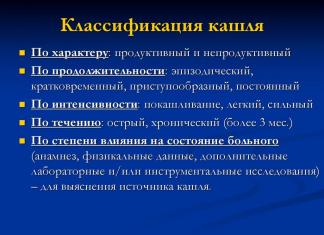You will not find in any school textbook the answer to the question “How to deal with absent-mindedness?” You may be driven to this by the desire to understand: “Where do things disappear in your apartment?” There is little funny in this, except in Marshak’s poem about an eccentric man from Basseynaya Street, who, due to his carelessness, ended up on the same platform several times.
Gloves, umbrellas, telephone, keys, jewelry - all this is lost at lightning speed, you just have time to keep track and buy. To overcome absent-mindedness and inattention, you need to understand the reasons for their appearance and finally pull yourself together.
Why do we lose everything?
As a child, you could cut yourself some slack and chalk up your absent-mindedness to having your head in the clouds. But adult life demands that we come down from heaven to earth, no matter how much we object. Needless to say, lost rights threaten a considerable fine and big problems with traffic cops, lost keys to an apartment - calling a locksmith and buying a new lock, loss of a phone - access to your personal information, including bank cards.
According to neuropsychologist Chris Moulin, some people are naturally more distracted than others. Add to this external factors, such as the frantic pace of life, routine, multitasking, stress, fatigue, high employment, and you will understand why we often lose something. At work, you have to think about several things at once, trying to solve work issues, everyday problems, and household chores. Naturally, the brain forgets unnecessary information - where you put the phone and whether you took an umbrella with you.
Psychologists also distinguish two types of absent-mindedness: imaginary and genuine. In the first case, forgetfulness is attributed to excessive concentration, when a person devotes a lot of time to something specific, forgetting about minor details. Professors, executives, scientists, businessmen, and politicians often suffer from this type of absent-mindedness. In the second case, absent-mindedness can be caused by health problems: fatigue, diseases of the respiratory system and nasopharynx, neurasthenia, psychosis, chronic fatigue, lack of sleep.

How to stop losing things?
The first thing you need to figure out is whether you are an absent-minded person yourself or whether it is caused by external factors. Maybe it will be enough for you to just have a good rest so that the cloudiness is replaced by a clear mind and sober memory? Along with rest, start taking B vitamins and folic acid. Meditation as a way to train your memory is also suitable.
Stop doing multiple things at once. Do only one thing, without being distracted by other, less important activities. You need to start implementing it only after a clear, well-thought-out plan of action, having spoken it to yourself - it will take time, but you are unlikely to forget what you wanted to do.
Put everything in its place. A very wise decision is to assign each thing its place. This way you won’t have to remember where you put your passport or keys yesterday and you’ll put your house in order. Keep special boxes for documents, checks and bills.
Block all attempts by your brain to switch to something else and try to keep your head in the clouds. Create conscious situations and associate objects with specific actions.
Don't accumulate things by putting them off for later. A task has appeared - complete it. Many unfinished tasks clog your memory, scatter your attention and prevent you from focusing on important things.
Use hints and reminders. Set a reminder on your smartphone about an important date or event. At the right moment they will work and remind you of the matter.
In order not to forget things in minibuses, hospitals, subways, cafes and other places outside the home, follow these recommendations:
Do not put anything in your pockets - they will not replace a bag, but your phone can easily fall out of your pocket. You can also forget about the contents of your pockets and send the item to the wash - then your money and documents will be irrevocably damaged;
Check the integrity of the bag linings;
Don’t start a frantic search for something in your purse in front of everyone (usually this happens on public transport when you need to hand over money for travel). Prepare your change in advance;
Give things their place: keys - a small inner pocket of the handbag, wallet, phone and passport - an internal compartment with a zipper, a work pass and a metro pass - in the back pocket;
Be sure to put everything away in a bag or bag as soon as you stop using the item. We got on the bus, closed the umbrella and put it in the bag; took off your gloves - put them in your bag, talked on the phone - don’t twirl it in your hands, but put it in your bag, paid for the fare - put your wallet in your bag, etc.
Make friends with things. It sounds strange, of course, but according to statistics, we more often lose things for which we feel nothing (or worse, we hate). You treat your favorite things more carefully, you check their availability 100 times. Buy an expensive and beautiful wallet, a funny keychain, a stylish cane umbrella. Before you know it, you will fall in love with things and stop losing them.
Why am I losing everything? Where do things, tools, documents disappear? I can't find it. What to do with absent-mindedness?
(10+)
Why am I losing everything? Where do things, tools, documents go? What to do with absent-mindedness?
Question:
I can’t find my things, I’m losing everything. I could lose my phone, documents, money. I can’t find tools and things at home. What to do?
Answer:
We'll lose everything
As I already said, attention disorders are a natural consequence of the recently greatly increased flow of information. Our brain has not yet adapted to these changes, and technology has not learned to intelligently filter and process this information for us. U different people attention disorders manifest themselves in varying degrees. Some are more receptive, some less.
Some people go into what I call a stress spiral. So, a person has lost something and cannot find it. Some people spit and relax. But some people start thinking about it, concentrating on it. When again you need to find or save something, not to lose it, then instead of concentrating on your task, such a person begins to think about how he is losing everything and cannot find anything. Accordingly, stress arises, which contributes to even greater forgetfulness.
In such a situation, the path of small improvements helps very well. If you manage to improve the situation a little, then your mood will improve. Well, improving your mood will lead to improved concentration. The spiral will begin to unwind in the other direction. You may even end up becoming a master of concentration.
How to stop losing things? Simple steps
How to quickly improve the situation with absent-mindedness? Five simple steps.
Change your diet. Take calming nutritional supplements. Avoid overeating and stimulants that cause rapid jumps in nervous activity, such as coffee. If you can’t bear to live without a stimulant, drink tea from the Far Eastern lemongrass. It stimulates much more gently than coffee, but for a longer time. Be careful, it can cause growth blood pressure, although not as strong as coffee, and insomnia. It can be combined with sedatives food additives. It turns out very well. A cup of lemongrass in the morning, something calming in the evening. Avoid alcohol and psychotropic drugs.
Limit the flow of information. Watch less TV, read less, use the Internet and phone less. Walk more, relax. Moderate physical activity will help.
Eliminate the possibility of losing key items outside the home. To avoid losing things in my thoughts, I tie them down. Nowadays they sell these spools with springs, from which a thin, strong thread is pulled out when pulled. And if you let go, it retracts back. They are usually used for attaching badges. I have a purse, a wallet with a passport and a passport tied to my pockets using such reels. mobile phone. I tightly attached the reel itself to a good safety pin, and cut the rope from a toy plastic head and tightly tied it to my wallet/purse/mobile case. I put an object in my pocket and immediately attach a reel from it to the same pocket. Now I don't worry about losing these important things, I don't spend my attention on them and I don't get stressed. One day a pickpocket took my wallet with my passport. But he didn't take him far. And he took away the black eye.
Have standard places for items. Every time after you use one or another item, put it in its designated place.
Remove all foreign objects from view. Provide yourself workplace. Whatever you do, first prepare your work area. Remove from your field of vision all objects that you do not need now and that may distract you.
These simple tips will help quickly improve the situation with absent-mindedness. And then remember about the spiral that unwinds in the opposite direction. Don't worry.
Unfortunately, errors are periodically found in articles; they are corrected, articles are supplemented, developed, and new ones are prepared. Subscribe to the news to stay informed.
If something is unclear, be sure to ask!
Ask a question. Discussion of the article.
More articles
What is my ideal weight? How much should I weigh?...
My ideal weight. How much should you weigh?...
Knitting. Beads. Sophistication. Drawings. Pattern schemes...
How to knit the following patterns: Beads. Sophistication. Detailed instructions with a belt...
Knitting. Three together with the front one (using the transfer method). Openwork rays. Color...
How to knit a combination of stitches three together with the front one (using the transfer method). Examples of pic...
Knitting. Wrapping single loop. Drawings. Pattern diagrams, samples...
How to knit a combination of stitches: Encircling single stitch. Examples of drawings with...
Knitting. Romantic candles. Drawings. Pattern schemes...
How to knit the following patterns: Romantic candles. Detailed instructions with explanation...
Knitting. Carved columns, Openwork transparency, Checkerboard of openwork rh...
How to knit the following patterns: Carved columns, Openwork transparency, Checkerboard...
Knitting. Curly dimples. Relief flowers. Drawings. Pattern schemes...
How to knit the following patterns: Curly dimples. Relief flowers. Detailed in...
Knitting. Parquet drawing. Drawings. Pattern schemes...
How to knit the following patterns: Parquet pattern. Detailed instructions with explanation...
Yesterday I lost my money, today I lost my keys, tomorrow... What to do if you can’t keep track of your things? If you constantly lose something?
Psychologists look at annoying human (including yours) absent-mindedness from an optimistic perspective. Only what causes negative emotions in us disappears, they assure. And they propose to regard every loss as... gain.
I DON'T FORGET, I'M DEFENDING myself!
At what point does a generally attentive and collected person become distracted? Scientists have long been interested in this question. And plus or minus, the legendary Sigmund Freud gave a clear answer to it.
According to the grandfather of modern psychoanalysis, absent-mindedness is nothing more than a form of protection of the body from... actions planned by the brain. Let's say, walking home from work, you think about fixing a broken switch. But, having crossed the threshold, the first thing you do is put on the kettle, then they call you on the phone, then your wife turns on the TV to some very interesting program, and then it’s time to go to bed. Thus, the switch remains unrepaired for several more days. Do you think you just “got distracted and forgot”? No matter how it is. Such absent-mindedness is explained by the reluctance of a tired body to do such work.
Unconscious “protection” is the cause of all kinds of losses. Freud assumed that the things that “run away” from a person are connected with a certain area of his life - be it work or relationships with loved ones - in which something seriously does not work out for the confused person.
THE KEY TO BOREDOM
A lost item is a symptom that hints at a particular problem. Psychologists have deciphered the most common losses. If you find that you have overdone...
...mobile phone - remember who (or what) you talked to most often before the loss. Most likely, these conversations embarrassed you or stepped on some hidden “callus”. And now: no phone - no problem;
...keys to the house. Those who regularly lose their door keys admit that they have tense (or, on the contrary, too bland) family relationships. They don’t want to return home, where a scandal or banal boredom awaits them. Sometimes a person doesn't even lose his keys - he just can't remember where he put them. This speaks of underlying fatigue from communication, a desire to be alone;
…money. Apparently, you are facing some not the most pleasant or, in your opinion, not the most necessary expenses. You are not ready for the upcoming purchase (or, let’s say, for going to a restaurant with a new young lady/gentleman). The second option: money comes to you too easily, and you simply don’t know what to do with it.
...an address or telephone number of a person. “Yes, I wrote it down! This is sclerosis...” - you lament. “Sclerosis” suggests that subconsciously you do not want to maintain a relationship with the “addressee”.
HOLD YOUR SUBCONSCIOUS IN YOUR HANDS
Why can one and the same person be either attentive and collected or absent-minded? According to psychologists, the point is how in at the moment he perceives the world.
When you control the world around you with your consciousness, everything is fine. But as soon as you daydream or get distracted, your subconscious comes to the fore. And he begins to save you from “problems” - at his own discretion.
What should you do - forever ban yourself from dreaming and distractions? Psychologists offer their own options for combating the tricks of the subconscious. For example, these.
1. Make friends with things. It has been noticed that we tend to treat things that we like and into which we have invested a “piece of our soul” more carefully. So put your soul into the subjects that are important to you. For example, ask your loved one to give you a cute and funny keychain (cell phone pendant). Or buy an amazing, unique wallet that will become a kind of extension of you.
2. Take responsibility. This advice comes from the area of self-discipline. Remember that the phrase “I was angry at work (upset at home), I was worried and therefore lost” is not an excuse. The reason for absent-mindedness is in yourself. You can dream, get distracted, and relax at home. And on the street or at work, be kind, control yourself.
3. Lost? Ask yourself what exactly the loss meant. The analysis will help you understand yourself and prevent a puncture next time.
NEGLIGENCE WITH SECRET INTENTION
Who would have thought that behind ordinary absent-mindedness there were complex psychological problems hidden! I made this amazing discovery at the “Know Yourself” training seminar, which was conducted by Candidate of Medical Sciences, psychotherapist Semyon Sherman.
What's the most expensive thing you've lost recently? - he asked me.
Cell phone,” I admitted and explained the reason. There was a weak clip on its case. And while walking, he unhooked from the waistband of his trousers.
No! - Semyon Grigorievich assured me. - The reason is much deeper. Without knowing it, you were deliberately negligent - you didn’t follow up.
Specially? - I was indignant. - It was a new and very expensive phone!
Remember who you talked to most on this phone before you lost it? - The doctor narrowed his eyes slyly.
I remembered. Then I was really pestered by an unpleasant guy. All my nerves were exhausted...
That’s it,” Sherman concludes with satisfaction. - The phone was lost, and the problem was solved. You have stopped communicating with your enemy.
UNNEEDED UMBRELLA
Laughter is laughter, but Sigmund Freud spoke about the unconscious intent that accompanies certain losses. And he assured that they can often be considered as a symptom that reveals some of our problems, internal conflict. And this one lost item, most likely, will be associated with that area of life - be it work or relationships with loved ones, where we feel insecure, where something does not satisfy us.
As proof, Freud always cited the example of a boy who constantly lost toys that he did not like or were tired of.
Or it often happens that an umbrella was just lying in front of your eyes - you looked back, and it was no longer there, - philosopher and psychoanalyst Anna Kiryanova gives another example. - And it “disappears” from sight because on a subconscious level you understand: you simply don’t want to take an umbrella. Moreover, weather forecasts, as a rule, do not justify themselves.
Or another example: we lose the address of a person, rummage through all the notebooks - in vain. It was like writing an address with disappearing ink. This suggests that subconsciously we do not want to maintain a relationship with this “addressee”.
NO KEYS - NO SCANDAL
“Many people often lose their house keys,” I say. - It turns out to be some kind of self-harm...
Those who regularly lose their house keys admit in conversation that they have tense family relationships and they don’t want to return home, where a scandal or hostile relationship awaits them, explains the psychologist. - It happens that people cannot remember where they put their keys. This indicates fatigue, “intoxication” from communication and a desire to be alone.
Often, many of us forget or lose our things in a stressful situation or when we are absorbed in something that worries us greatly. But as soon as we begin to realize what exactly is bothering us, the absent-mindedness goes away.
Here is one case told in one psychological magazine: “At work, I constantly lost all sorts of little things: sometimes I left the keys to the office or to the safe at home, sometimes I couldn’t find a notebook with business notes, sometimes I forgot my wallet in the dining room,” writes Victoria, 29 years old. , logistics. - At first I treated this with irony, considered absent-mindedness to be my cute feature, and laughed about it to my colleagues and friends. But at some point I noticed that they didn’t seem to take me seriously: at work interesting project I gave it to a colleague; a friend once said that she wouldn’t trust me with her child even for an hour. And then I realized: my absent-mindedness, all these “losses” and “forgettings” are simply an unwillingness to take responsibility for my life, a fear of any obligations. Realizing this, I became a more pedantic person, and now I have my things with me. In addition, the attitude of colleagues and friends towards me has changed for the better.”
BELIEVE IT - DON'T BELIEVE IT
Psychoanalyst Daria Berezhnaya:
If you have lost something and are firmly convinced that it is at home, then you need to do the following. When you go to bed, think very hard about this thing, imagine it in every detail. Remember the stories associated with it. And already in a dream you will see certain symbols that will help you find it. Of course, you are unlikely to see in a dream the closet behind which your loss fell. But some identification marks that will give you guidelines will definitely come to you in a dream. When you wake up, listen to your intuition and go in the direction where it sends you. And there, most likely, you will find the loss.
There are more folk method. You need to say: “Damn, damn, play and give it back,” thinking about the lost thing. And she will show up soon.
ADVICE FROM A PSYCHOLOGIST
Ways to overcome absent-mindedness
Elena Shakhnovskaya, consulting psychologist, author of Psychologies magazine:
1. You need to make friends with things.
A simple way to become more attentive to things is to invest your emotions in them. Buy a funny keychain, a beautiful wallet. We tend to treat things we like more carefully.
2. Take responsibility.
Thinking that we lose things due to random circumstances (“I got angry at work”), we shift responsibility onto them and cannot influence the situation in any way. It is important to remember that the reason for our absent-mindedness is in ourselves, and a lost thing can symbolize some of our problems.
3. Ask yourself a question.
It is helpful to ask yourself, “If the loss meant something, what did it mean?” Listen to your emotions: somewhere on the periphery of irritation or confusion, you may find relief. It is this experience that can lead you to the correct answer. What burden did you want to get rid of? What worries you? Perhaps you internally reject this part of life, or, conversely, its value for you is so great that it causes anxiety that you cannot cope with.
On the one hand, the more often you take part in searching for things, the more often you will be contacted with a similar request. On the other hand, a loved one may in this way let you know that he feels confused and lonely. If you move away, then, in fact, you do not react in any way to the SOS signal, which a person, albeit unconsciously, can afford. Show insight and try to understand what is happening to him, what exactly he cannot tell you directly. And then react not to the symptom, but to the cause.
FOLK SIGNS
Findings Meanings
If you find an old key, then it promises a quick resolution to some problems. Like in the fairy tale "Alice in Wonderland", it will open new doors and new opportunities.
Finding a ring can bring bad luck because it is very closely associated with the person who wore it.
Finding a cross means taking on the burden of someone else's suffering. It is best to take such a find to the temple, where they will tell you what to do with it.
If money is found, then part of it should be given to poor, needy people, and the rest should be spent on some trifles, so that just as easily as they came, they go away.
Finding some animal on the street - a dog or a cat - is also not accidental. This is like your test, exam, test. What you do with this animal: whether you drive it out, feed it or take it for yourself - your future will depend on this. Found cats usually bring great happiness.
But the found treasure can bring misfortune. It’s not for nothing that there is a proverb: “If you get a treasure, you won’t be at home.” After all, when someone buries a treasure, they wish with all their hearts that it would not be found. And he curses in advance the one who finds him.
Svetlana Kuzina


























